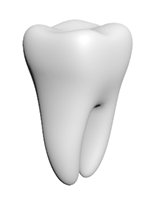A Dental Prosthetist is a fully qualified and skilled member of the dental profession who constructs, fits and provides a complete and professional denture care service.
Our Dental Prosthetist, who you will see about getting your new dentures, is also the person who will handle every step in the construction of your denture: from the first impression to the last adjustment. This enables you to discuss any concerns you may have and also to advise on anything that you may not like about your current dentures.
A referral is not necessary to see our Dental Prosthetist. In some circumstances general practitioners or dentists may refer patients for treatment.
There are many different treatment options available for denture wearers. A consultation is required so that our Dental Prosthetist can discuss with you the best treatment plan for your individual situation. At your initial consultation you will be provided with a quote before any further treatment is provided.
We accept all Major Credit Cards, & Cash, Eftpos, Veterans Affairs, Health Fund Rebates On The Spot (HICAPS) & Medicare EPC.
HICAPS is an electronic system allowing your claim to be made directly to your Health Fund. The fund pays your rebate direct to the Dental Prosthetist and you only need to pay the outstanding gap. Most major Health Funds now offer this convenient and easy to use system.
The tissue and underlying bone in the mouth are continually changing. Over time your dentures will need to be adjusted, relined or replaced to maintain a good fit. The average life of a denture is about five to seven years.
Our Dental Prosthetist will be able to advise you on the general condition of your dentures and the best treatment plan and how to proceed.
Cleaning your dentures daily with a non-abrasive cleaner and a soft bristled brush will help to minimise the build up of plaque and stains. Abrasives in toothpaste can cause microscopic scratches that allow bacteria and stains to attach to the denture more readily.
We recommend that you clean your dentures over a sink with some water in it, or a folded towel in case they are dropped. In addition to caring for your dentures, taking care of your mouth is also important. This includes brushing your gums, tongue, and palate every morning with a soft-bristled brush before inserting your dentures.
We recommend that you book in for a yearly Denture checkup. This is important for your general oral health, and also helps to monitor for any changes with the fit or health of your gums and dentures. Over time dentures may become loose because a mouth naturally changes with age. Bone and gum ridges can recede or shrink, causing jaws to align differently and affecting the fit of your dentures.
Worn out and ill-fitting dentures can cause permanent damage, compromising the health of the denture wearer. Some possible effects are: headaches, neck and joint pain, difficulty chewing, poor digestion, sunken face, over-closing of the jaw, irritated and soft gums, as well as premature bone loss.
Call our Dental Prosthetist immediately. Usually, dentures can be repaired quickly, often on the same day. Damaged dentures can also cause additional oral health problems so it is important to have them repaired as soon as possible. Hold on to any teeth that may break off as this will possibly save the cost of replacing that tooth. You can seriously damage your dentures and harm your health by trying to adjust or repair your dentures yourself. A denture that has not been made to fit properly can cause irritation and sores.
Existing dentures can be relined or rebased to obtain a proper fit, usually on the same day. Our Dental Prosthetist can diagnose whether this is a viable option for you.
Initially, you may want to wear your denture most of the time. Our Dental Prosthetist will provide instructions about how long dentures should be kept in place. Generally, your mouth tissues need to rest so it is advisable that you remove your dentures before going to bed. This allows gum tissues to rest and also promotes oral health.
New dentures may feel awkward for a few weeks until you become accustomed to them. The muscles of your cheeks and tongue need time to learn to keep your dentures in place. It is not unusual to experience minor irritation or soreness. You may find that saliva flow temporarily increases. As your mouth becomes accustomed to the dentures, these problems should diminish.
You may notice some differences in your speech at first but with time your tongue, lips and cheeks will become accustomed to the contours of your dentures. By practicing reading out loud and enunciating clearly, you will quickly become used to your new dentures and how to speak with them.
Dentures can be made to closely resemble your natural teeth so that little change in appearance will be noticeable.
Our Dental Prosthetist will cater the dentures to your individual requirements to ensure that you will be happy with the appearance.
Eating with dentures for the first time will require patience but with time you will be able to bite and chew more naturally.
Some helpful tips include - starting with soft foods, taking small bites, and chewing on both sides of the mouth simultaneously.
Partial dentures help prevent your remaining teeth from shifting into the space left by your natural teeth.
Dentures also improve your overall appearance through proper lip and cheek support, as well as restoring proper function.
Time frame will vary from case to case, depending on the complexity.
Generally, approximately 5-6 appointments are required to complete the new denture(s). The process requires having an initial consultation.
This will allow the Prosthetist to advise which denture would best suit your needs.
At this appointment you will be given a treatment plan which includes an estimation of your cost for the denture.
